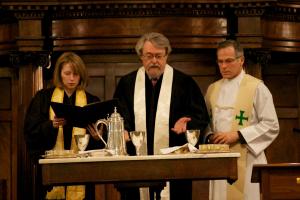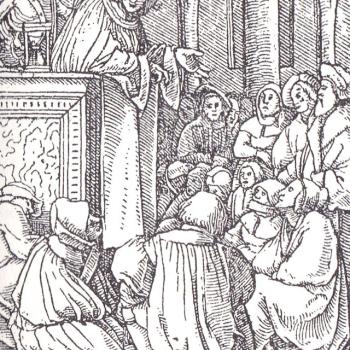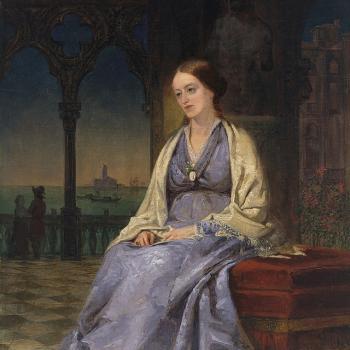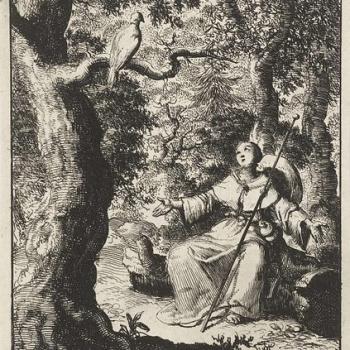A Celebration of Communion
for Unitarian Universalists & Other Religious Liberals
Preface
Since first celebrated for Maundy Thursday in 1995, versions of this service have been used within Unitarian Universalist communities across the North American continent. All are welcome to adapt it and use for their communities. Acknowledgements are appreciated.
The sources upon which this service are based are many and varied. But grateful acknowledgment must be given especially to the Anglican liturgical scholars Dom Gregory Dix and the Reverend Dr Louis Weil. The former for his generative writings on Eucharistic theology and the later for his guidance of the editor’s liturgical thinking while studying at the Graduate Theological Union in Berkeley, California.
Those of a scholarly turn may discern the Anaphora of Hippolytus, one of the most venerable of eucharistic liturgies, at the foundation of this contemporary service. In addition, endless gratitude and acknowledgment of the inspiration of the Unitarian Universalist Congregation of Abraxis as well as the “Celebration of Eucharist” edited by the Rev’d Dr Mark Belletini, which shaped much of the deep structures of this service. The opening responsive reading is slightly adapted from a reading by the Rev’d Robert Eller-Issacs, itself based on Matthew 25. The Magnifcat is from the Inclusive Bible. The Benediction is from In Blackwater Woods by Mary Oliver.
The Rev’d James Ishmael Ford, Editor
THE TEACHINGS
A bell is rung.
Reader 1: I was hungry, and you gave me food. I was thirsty and you gave me drink.
All: I was a stranger and you welcomed me. I was naked and you clothed me.
Reader 1: I was sick and you visited me. I was in prison and you came to me.
All: Here is the bread of life, food for the spirit. Let all who hunger come and eat.
Reader 1: Here is the fruit of the vine, pressed and poured out for us. Let all who thirst now come and drink.
All: We come to break bread. We come to drink of the fruit of the vine. We come to make peace.
Reader 1: May we never praise God with our mouths while denying in our hearts or by our acts the love that is our common speech.
All: I come to be restored in the love of God. I come to be made new as an instrument of that love.
Reader 1: I know that all are worthy. I know that I am welcome as I am.
All: All are welcome. I am welcome.
Reader 1: Come into the embrace and remembrance of this communion.
The chalice is lit in silence.
A Hymn may be sung here.
Reader 2: We have come together this evening to share food for the body and the spirit. Ours is a community of many differing beliefs about the nature of humanity and what is holy. Many strands weave here to make the wonderful cord that binds us together. One precious strand is the life and story of Jesus, the child of Mary and Joseph. Tonightwe take time, once again, to share his teachings and his story with each other, joining together in a holy communion.
President: We come here from the cares of our lives in the world, burdened with the knowledge of what we have done and what we have left undone that has caused pain and suffering among those with whom we live. Our world is divided. Our hearts are divided. Let us sit together for a few moments in silence and consider the power and cost of the great reconciliation of which Jesus sung.
Silence
Reader 3: My soul proclaims your greatness, O God,
and my spirit rejoices in you, my Savior.
For you have looked with favor
upon your lowly servant,
and from this day forward
all generations will call me blessed.
For you, the Almighty, have done great things for me, and holy is your Name.
Your mercy reaches from age to age
for those who fear you.
You have shown strength with your arm;
you have scattered the proud in their conceit; you have deposed the mighty from their thrones and raised the lowly to high places.
You have filled the hungry with good things, while you have sent the rich away empty.
You have come to the aid of Israel your servant, mindful of your mercy –
the promise you made to our ancestors –
to Sarah and Abraham
and their descendants forever.
(Luke 1:46-55)
President: These are words of a harsh and dreadful love. In his life and teachings, Jesus gave valuable counsel, a warning against all oppressions, and deep words of comfort to those who would discover the realm of God on this good earth. Let us remember.
Reader 4: Blessed are the poor in spirit; for theirs is the kingdom of heaven.
All: Blessed are they that mourn; for they shall be comforted.
Reader 4: Blessed are the meek; for they shall inherit the earth.
All: Blessed are they which hunger and thirst after righteousness; for they shall be filled.
Reader 4: Blessed are the merciful; for they shall obtain mercy.
All: Blessed are the pure in heart; for they shall see God.
Reader 4: Blessed are the peacemakers; for they shall be called children of God.
All: Blessed are they who are persecuted for righteousness’ sake; for theirs is the kingdom of heaven.
President: You shall love God with all your heart, and with all your soul, and with all your mind, and with all your strength. This is the first and great commandment.
All: And the second is like it, namely this: you shall love your neighbor as yourself. There is no other commandment greater than these.
A hymn may be sung or a musical reflection
A text from Scripture or otherwise appropriate to the season may be read here
A brief homily may be given here
THE STORY
Reader 5: We now come to the part of our service called the Great Thanksgiving. This is a sacred meal and this is a sacred time. It is a meal that we share not only among ourselves, but with all those in the past and future who are gathered together into this precious present. This is sacred time when past and future have folded into this very moment.
Reader 6: It is important to remember those who whether or not present physically, are very much among us. Our parents, our children, friends, lovers, the beloved dead; all that great cloud of witnesses are gathered together at this meal. If you wish, this is a time to name those people who are particularly in your heart. This is an opportunity to name those whom we mourn or celebrate or simply remember.
People name their names. A bell is rung at each name.
Reader 7: And now let us consider the purpose of a meal as a sacred celebration.
All: From the dawn of time people have gathered together to celebrate life with food and friends. The great forces of nature, the precariousness of life, the miracle of life, are found in the taste of bread.
Reader 7: In ancient Sumeria, where the Tigris and Euphrates cradle civilization and where the word “freedom” first appeared in human history, Tammuz the god of field and meadow died each year and came to life in marriage with Inanna, goddess of soil and fertility.
All: In early Greece, Persephone, goddess of grain and Orpheus and Dionysus, the gods of music and wine, died each year with the cycle of the seasons and came to life again as a sign of hope.
Reader 7: In ancient Egypt, people planted seeds in the fertile earth, the body of Isis that her dead lover Osiris, god of grain and harvest might spring to life again.
All: On the night following their deliverance from slavery to Pharaoh, the children of Israel shared a feast of unleavened bread to mark their rescue from bondage.
Reader 7: And we ourselves stand in that living tradition which remembers. Tonight we remember the story of Jesus sharing broken bread and common cup with his friends at the Passover. From the mystery of that story to the mystery of this table is no longer than a heartbeat, for the proof of the past is presence.
The President lifts up the bread
President: Even as uncountable grains are gathered together to make this bread, so we gather together in the unity of our common humanity.
The President pours a little water into the wine, and lifts up the flagon
President: Even as this water and wine mix together into one, so our bodies and minds dance and blend together into a holy union.
All: May the spirit of love fall upon us and on this bread and wine that we may see each other and the divine in the breaking of the bread.
President: Jesus said, unless you lose your life you will not live, and if you try to save your life you will lose it. Luke 17:33
A bell is rung
President: On the evening of his death Jesus called us to the mystery of life, and like a weaning mother, carried us no farther; setting us free. Blessing you, oh love, and this festive bread, (the
President touches the bread), he said, take and eat, this is my body which is broken for you. Do this in remembrance of me. Blessing you, love, and this festive cup (the President touches the cup), he said, this is the cup of an eternally renewed covenant. As often as you drink this wine, do it in remembrance of me.
All: Therefore, come, oh spirit of love, and move within us, that we may truly see our kinship with you and with each other. May we live in such a way that the vision Jesus proclaimed is made flesh and blood in us.
Reader 8: Now let the heavens be rent for us, and the earth be made new in our sight, as we take your good gifts as signs of our own becoming, and in the sharing of them, recall once again the eternal manifestation of that great feast which is given to all who hunger and thirst for justice and mercy.
The president then tears the bread into parts and drops a small crumb into the wine. Holding up the cup and a morsel of bread, the President says
President: Behold the life of the world. Eat and drink in the peace and love of Jesus, the child of Mary and Joseph.
Those designated distribute the bread. All wait until everyone has a morsel.
President: May all be fed, may all be nourished.
Everyone eats.
The wine is passed to the community. Everyone takes a sip.
President: Bread and wine, the blessings of this good earth, the call of our hearts.
A Hymn may be sung.
Reader 9: A Benediction out of this moment.Look, the trees are turning their own bodies into pillars of light, are giving off the rich fragrance of cinnamon and fulfillment, the long tapers of cattails are bursting and floating away over the blue shoulders of the ponds, and every pond, no matter what its name is, is nameless now. Every year everything I have ever learned in my lifetime leads back to this: the fires and the black river of loss whose other side is salvation, whose meaning none of us will ever know. To live in this world you must be able to do three things: to love what is mortal; to hold it against your bones knowing your own life depends on it; and, when the time comes to let it go, to let it go. (Mary Oliver)
President: (Speaks words of comfort.)
All: Amen.













